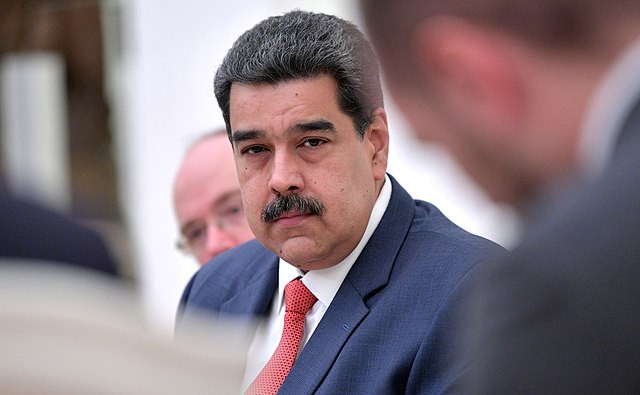The United States has sent its largest aircraft carrier, the USS Gerald R. Ford, and a carrier strike group to the Caribbean as the Biden-era posture on the region gives way to a renewed, confrontational campaign under President Donald Trump aimed at disrupting alleged drug-smuggling networks tied to Venezuela, U.S. and regional officials said. Venezuela's President Nicolás Maduro denounced the deployment as proof Washington is "inventing a new eternal war."
The Pentagon said the carrier group's deployment "will enhance and augment existing capabilities to disrupt narcotics trafficking and degrade and dismantle transnational criminal organizations." Defense officials have paired the movement of the Ford with a recent string of strikes on small vessels the U.S. says are linked to narco-traffickers.
U.S. officials, including Defense Secretary Pete Hegseth, described the operation as focused on transnational criminal networks. Mr. Hegseth said in public posts that six "narco-terrorists" were killed in the most recent strike on a boat in international waters and warned, "If you are a narco-terrorist smuggling drugs in our hemisphere, we will treat you like we treat al Qaeda. Day or NIGHT, we will map your networks, track your people, hunt you down, and kill you."
The moves have heightened alarms across Latin America and prompted sharp rhetoric from Caracas. Mr. Maduro told state media in Caracas: "The people of the United States know it, they are inventing a new eternal war. They promised they would never get involved in another war, and now they are inventing a war that we are going to prevent. How? By mobilizing the peoples of South America."
Analysts warn the campaign risks widening geopolitical tensions in a region with deep sensitivities about foreign intervention. Kenneth Roberts, a Latin-America scholar at Cornell University, said, "It has become clear that the U.S. is returning to a very familiar pattern of interventionism in Latin America in Donald Trump's second presidency." Mr. Roberts added that the public authorization of covert activities alongside lethal strikes on small vessels represents a notable escalation.
The scale and recent tempo of the U.S. operation are measurable:
- USS Gerald R. Ford - the Navy's largest carrier, capable of carrying up to 90 aircraft - ordered to the region.
- Existing U.S. presence: eight Navy ships, a nuclear-powered submarine and roughly 6,000 sailors and marines already in the area, officials said.
- Reported strikes: about 10 vessels hit in recent weeks, with more than 40 people killed; the most recent strike reportedly killed six people.
President Trump framed the campaign in stark lifesaving terms at a White House appearance, arguing that disrupting maritime trafficking would blunt the opioid crisis. "Every boat that we knock out, we save 25,000 American lives. So every time you see a boat, and you feel badly you say, 'Wow, that's rough'. It is rough, but if you lose three people and save 25,000 people," he said.






